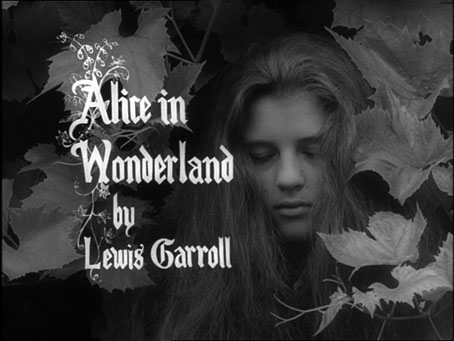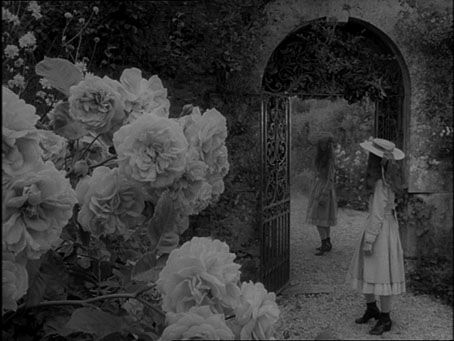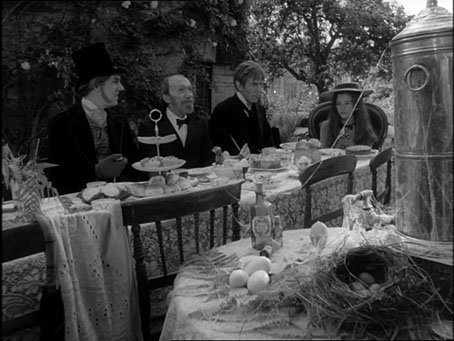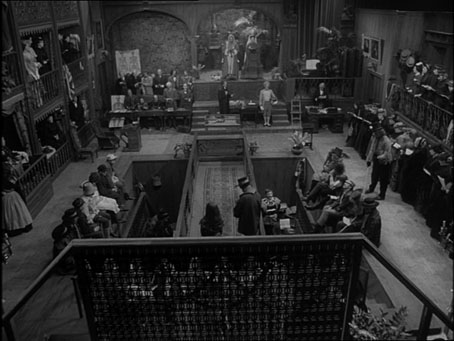
I said, “Girl, you drank a lot of Drink Me,
But you ain’t in a Wonderland
You know I might-a be there to greet you, child,
When your trippin’ ship touches sand.”Donovan, The Trip (1966)
Most of the key texts of the psychedelic period tend to be either non-fiction—Aldous Huxley’s Doors of Perception, Timothy Leary’s The Psychedelic Experience—or spiritual works such as The Tibetan Book of the Dead, the volume upon which Leary’s book is based and which subsequently provided John Lennon with lines for Tomorrow Never Knows. The key fictional work of the era has to be Lewis Carroll’s Alice in Wonderland, a fact that would no doubt have surprised the book’s legions of enthusiastic Victorian readers, never mind its author. Grace Slick created the definitive Alice song with White Rabbit in 1965, written while she was with the Great Society but only recorded properly in 1967 after she’d joined Jefferson Airplane. But Alice’s adventures run a rich seam of Victorian whimsy through the music of 1966 to ’69, especially among the British bands whose lyrics tend to be far more childish and frivolous than their American counterparts. Donovan probably got there first among the Brits with The Trip on his Sunshine Superman album. Among the profusion of later references can be found one-off singles such as Alice in Wonderland (1967) by the Dave Heenan Set (who recorded songs for the Barbarella soundtrack as The Glitterhouse) and Jabberwock/Which Dreamed It? (1968) by Boeing Duveen & The Beautiful Soup, a band whose songwriter is better known today as Hank Wangford.

Which florid preamble brings us to this television film version of the first Alice book by writer/director/doctor Jonathan Miller, first broadcast by the BBC as part of the Wednesday Play strand in December 1966. This was one of Miller’s earliest outings as a film director, and his earlier role in the Beyond the Fringe team (with Alan Bennett, Peter Cook and Dudley Moore) helps explain its extraordinary cast of acting and comedy talent, all of whom portray Carroll’s characters without masks or any kind of animal impersonation: Wilfred Bramble is a rather camp White Rabbit, Finlay Currie plays the Dodo, Michael Redgrave is the Caterpillar, Leo McKern drags up as the ugly Duchess and John Gielgud is the Mock Turtle. Alan Bennett and Peter Cook appear as the Mouse and Mad Hatter respectively which always makes me wonder why Dudley Moore is missing. The most surprising cast member is Peter Sellers as the King of Hearts, Sellers being an international film star by this point and about to appear in a string of Hollywood-goes-psych films with the sprawling Casino Royale, I Love You, Alice B. Toklas! and The Magic Christian. In this respect Miller’s Alice acts as a precursor to the burgeoning excesses of the decade, just as Tomorrow Never Knows and Donovan’s Sunshine Superman album (both made the same year as Miller’s film) stand as signposts for the music of the next two years. Miller was certainly paying attention to cultural developments outside the BBC, most strikingly with the musical score which erupts into sitar and tabla at the first appearance of the White Rabbit. The music was specially composed by Ravi Shankar and this alone indelibly links the film to its period. The moody black and white photography was by Dick Bush who also photographed Miller’s stunning BBC adaptation of MR James’ ghost story Whistle and I’ll Come to You two years later.

The only flaw for me in an otherwise excellent production is the rather wooden performance of Anne-Marie Mallik as Alice who not only seems too old for the role (about 14 or so) but, in her one and only performance, can’t possibly compete against such a heavyweight cast. Grumbles aside I love the reimagining of Wonderland as a rambling, semi-deserted mansion and grounds. Given Miller’s medical background and the lack of animal characteristics, one can interpret Alice’s experience as being a journey through a Victorian madhouse. “We’re all mad here. I’m mad. You’re mad,” as the Cheshire Cat says in the book. Close viewing reveals some additional surprises with an uncredited Eric Idle in a couple of scenes and also minuscule Angelo Muscat whose most famous role was the silent butler in The Prisoner TV series. Leo McKern played No. 2 in several episodes of The Prisoner so when we see them here exiting hand-in-hand it’s as though they’re both leaving to search for Patrick McGoohan.

I don’t much like the Disney version of Alice in Wonderland, and don’t recall having seen the popular 1973 version starring Fiona Fullerton. Film and TV adaptations of Alice are legion, of course, as are illustrated versions; Tim Burton has his own adaptation due next year. That seems promising but for now I’ll stick with Miller’s film and what I imagine is still the strangest version of them all, Jan Svankmajer’s semi-animated Alice from 1988.
Both Miller’s BBC films are available on DVD.
Previously on { feuilleton }
• Patrick McGoohan and The Prisoner
• Jan Svankmajer: The Complete Short Films
• The L.S. Bumble Bee
• The Illustrators of Alice

I can’t believe I’ve never seen this version- it looks fantastic!
Highly enjoyed this post, and your feuilleton in general..
Hi Angeliska. For years this was completely unavailable due to the BBC’s usual habit of screening things once or twice then locking them away. They showed this and Miller’s ghost story again in 1986 as part of some anniversary celebration which was the first chance I had to see them. Happily they’re both on DVD now, one hopes for good.
Hank in a previous life is here
http://www.myspace.com/boeingduveenandthebeautifulsoup
I’ve always thought that Anne-Marie Mallik’s performance was great – sleepwalking through the part. I’d be surprised if Miller hadn’t intended this. As for her being too old, I guess she reflects the sexualised Alice, the child-woman of the surrealists, which resulted ultimately in Graham Ovenden’s very dubious work.
Hi Bernard. Thanks for the Boeing Duveen link. I have both those tracks on psych-related comps. The B-side seems to be favoured more these days than Jabberwock.
Dave C: I probably should have said that most screen Alices tend to be older than their book equivalents. Not sure why that is: Fairuza Balk is just as good a Dorothy in Return to Oz as Judy Garland was in Wizard but didn’t have to play up any naivety. In Miller’s version she does indeed seem to be sleepwalking rather than actively engaging with the characters like the book Alice.
I liked Mallik’s performance as well. She fit the mood of the film, which is more end-of-the-pier and “Sunny Afternoon” than the book.
A good review, especially in light of the impending Disney/Burton release. Malik’s performance was overly mannered although that was the point, I guess. I think the visual look, the use of space & texture acting as a foil to the “meatier” English style of acting, on B&W film stock also, was unusually accurate and faithful to the spirit of the book.
I agree that this & Svankmajer’s version are the only decent ones so far, I fear the worst for Burton as his (undeniable) talents are too deeply rooted in American pop-culture to grasp the unique nature of AIW.
Svankmajer also did a magnificent short of Jabberwocky, I suspect you would love it. E-mail me for more info about it if you wish.
Very good blog, very useful professionally & personally!
A Story! Long ago I used to have a house full of gamers that I visited occasionally, & one such night I took Svankmajer’s Alice over there and tricked them into watching it with me.
They were pretty straight boring people for the most part and I was curious what they would think of such a strange film!
Turns out they took it in stride, as from a gamer’s perspective it all seemed very similar to how events unfold in a puzzle type video game. They all bickered at each point in the narrative where Alice was stuck, how she was going to solve the puzzle to move on to the next level. Huh, neat!
Love that movie, and this one that is the subject of your post, which I watched on your rec a while ago. not looking forward to the burton adapt though, blah.
I’m actually looking forward to Burton’s Alice with the proviso that there’s been several of his films I’ve not enjoyed at all. Helps when he has a decent script usually.
Mahendra: Svankmajer rules and I have the double-DVD set of his short films which includes Jabberwocky among them. I love the music in that one not least for the Quay Brothers’ reusing of it in their own short about Svankmajer.
Charity: that doesn’t surprise me about the gamers since both Carroll’s books are very episodic, something which film adaptations tend to show up more than the books themselves. It so happens that one of the last computer games I bothered playing all the way through was American McGee’s Alice which pretty much Burtonised the whole of Wonderland nearly a decade before Tim. Even the music in that game is like a Danny Elfman score.
Hello Mr Coulthart, thank you for this wonderful post (and congrats). FYI: I gave it a mention here http://snaporaz.posterous.com/psychedelic-sitar-alice (+ check the tags for more, viz. http://snaporaz.posterous.com/tag/alice + http://uzine.posterous.com/tag/alice ;-))